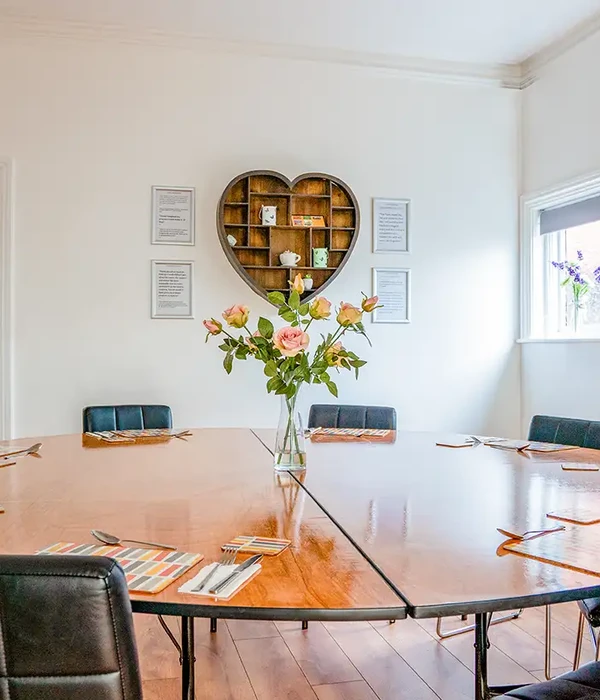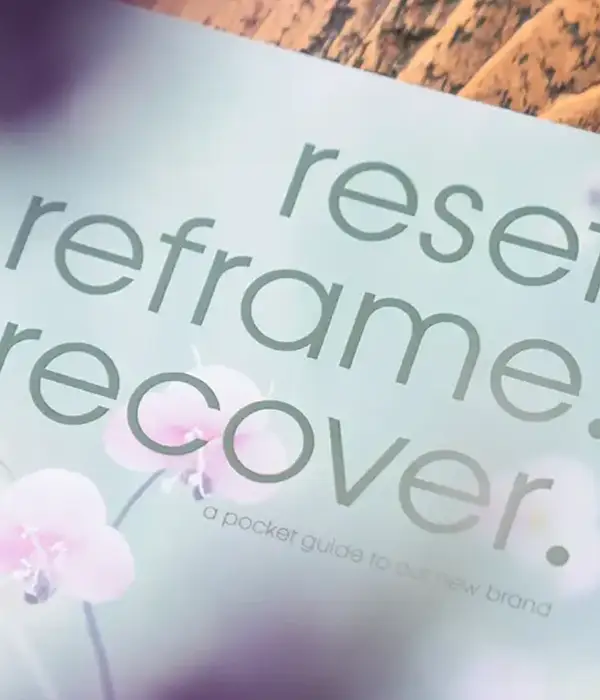Therapy Modalities
When you look into therapy, the number of approaches can feel overwhelming. From structured talking therapies in the UK to more holistic counselling approaches, each path offers something unique. Therapy modalities are simply the different methods and techniques used to support emotional wellbeing, recovery, and personal growth.
We believe no single approach works for everyone, which is why we focus on a full continuum of care. That means offering support across residential programmes, outpatient services, and holistic options, so you can find the right balance for your needs. Whether it’s psychodynamic therapy for deeper exploration or practical strategies for addiction recovery, the right modality can make all the difference.
By exploring the range of therapies available, you gain the chance to match your personal goals with the support that fits best. Our aim is to help you feel understood, supported, and equipped with the tools that guide lasting change.

Finding the Right Support for Your Journey
Choosing the right type of therapy can feel overwhelming, especially with so many approaches available. Some people prefer structured methods like Cognitive Behavioural Therapy (CBT), while others find value in more reflective approaches such as psychodynamic therapy.

Types of Therapy We Offer
We provide structured, evidence-based therapies designed to help people manage emotional challenges and develop healthier coping strategies. Each approach focuses on building practical skills that support long-term recovery and greater stability in daily life.
Cognitive Behavioural Therapy (CBT)
Cognitive Behavioural Therapy (CBT) helps people recognise the link between thoughts, feelings, and behaviours. By identifying unhelpful thinking patterns, we can work together to replace them with more balanced and constructive approaches.
This method is highly structured and goal-oriented, making it effective for conditions such as depression, anxiety, eating disorders, and substance misuse. Sessions often focus on specific challenges, with practical exercises that encourage new ways of responding to stressful situations.
We guide clients through short-term, focused work that typically lasts between 12 and 20 sessions. The aim is to equip individuals with tools they can continue to use independently, improving resilience and confidence in managing everyday difficulties.


Dialectical Behaviour Therapy (DBT)
Dialectical Behaviour Therapy (DBT) combines elements of CBT with mindfulness and emotional regulation techniques. It is particularly suited to individuals who experience intense emotions or struggle with self-destructive behaviours.
DBT teaches skills across four key areas: mindfulness, distress tolerance, emotional regulation, and interpersonal effectiveness. Through structured sessions and practical exercises, clients learn to manage overwhelming feelings without resorting to harmful coping mechanisms.
Treatment typically involves both individual and group work, offering opportunities to practise new skills in a supportive environment. Over time, clients gain greater stability, improved relationships, and a stronger ability to handle challenging situations with clarity and balance.
Exploring Different Counselling Approaches
We recognise that people seek support for many reasons, from relationship difficulties to coping with loss. Each counselling approach offers a distinct way of working, shaped by its focus, methods, and desired outcomes. By understanding these differences, we can better match the right form of therapy to an individual’s needs.
Counselling Services
Our counselling services provide structured support for individuals facing emotional, psychological, or behavioural challenges. Sessions are delivered in a safe and confidential space, allowing clients to explore personal difficulties without judgement. We tailor our approach to the unique needs of each person, often drawing on integrative counselling to combine different therapeutic methods.
We focus on helping clients build resilience, increase self-awareness, and develop practical coping strategies. Whether someone is struggling with anxiety, stress, or difficult life transitions, counselling offers the opportunity to work through these challenges at a manageable pace.
Bereavement Counselling
Bereavement counselling supports individuals coping with the death of a loved one. We understand that grief can affect every aspect of life, from emotional wellbeing to daily functioning. Our aim is to provide a space where people can express their feelings openly and at their own pace.
Sessions often focus on processing the reality of loss, exploring personal reactions, and finding ways to adjust to life without the person who has died. This may involve addressing feelings of guilt, anger, or regret, which are common in the grieving process.
Online Counselling
Online counselling provides flexible access to therapy for those unable to attend face-to-face sessions. We use secure digital platforms to ensure confidentiality while maintaining the same professional standards as in-person counselling.
This approach is especially helpful for individuals with mobility challenges, busy schedules, or those living in remote areas. It also allows clients to engage with therapy from the comfort of their own environment, which can reduce barriers to seeking help.
We adapt our methods to ensure that the therapeutic relationship remains strong, whether sessions are conducted via video call, phone, or secure messaging.
Relationship Counselling
Relationship Counselling helps couples and individuals address issues that affect their ability to connect and communicate effectively. We work with partners to identify patterns of conflict, improve listening skills, and strengthen trust. By creating a neutral space, we help both parties feel heard and understood.
Our approach is not limited to romantic partnerships. We also support family members, friends, or colleagues who may be experiencing difficulties in their interactions. Sessions often focus on improving problem-solving skills and clarifying expectations within the relationship.
This type of counselling can be especially valuable when couples face challenges such as communication breakdowns, unresolved disagreements, or the impact of external stressors.
Grief Counselling
Grief counselling is closely related to bereavement support but can extend beyond the loss of a loved one. We recognise that grief may also follow experiences such as divorce, redundancy, or significant lifestyle changes. Our role is to help clients acknowledge and work through these feelings in a constructive way.
Through guided conversations, we encourage clients to explore the emotional, physical, and social impact of their grief. We also introduce coping strategies that can ease the intensity of overwhelming emotions.
By validating the client’s experience and offering consistent support, grief counselling helps people adapt to their new circumstances
Psychodynamic Therapy
Psychodynamic therapy explores how unconscious thoughts and early life experiences influence present behaviour and emotions. We work with clients to uncover patterns that may be contributing to difficulties in relationships, self-esteem, or decision-making.
This approach often involves examining recurring themes, defence mechanisms, and unresolved conflicts from the past. By bringing these into awareness, clients gain insight into the roots of their struggles.
Sessions are typically reflective and exploratory, allowing space for deeper understanding rather than focusing solely on immediate problem-solving. Research has shown that psychodynamic therapy can be effective for a wide range of emotional and psychological concerns.
Other Therapy Modalities at Our Treatment Centres
Different therapeutic approaches give us practical tools to manage daily challenges, build healthier connections, reduce the risk of setbacks, and gain a clearer understanding of ourselves. These outcomes support lasting recovery and stronger wellbeing.

Specialised and Advanced Modalities
We provide advanced therapeutic options that address specific challenges in a focused and structured way. These approaches are designed to meet complex needs and offer evidence-based methods that help clients work through deeply rooted issues or relationship difficulties.
EMDR Therapy
Eye Movement Desensitisation and Reprocessing (EMDR) therapy is a structured approach that helps people process distressing memories and reduce their emotional impact. It is often used for trauma, post-traumatic stress disorder, and other conditions linked to overwhelming experiences.
In EMDR sessions, we guide clients through recalling difficult memories while engaging in bilateral stimulation, such as eye movements or tapping. This process supports the brain in reprocessing the memory so it feels less intrusive and disruptive in daily life.
Research shows that EMDR can bring meaningful improvement in fewer sessions than some traditional therapies. By targeting the memory network directly, we help clients reduce symptoms like flashbacks, anxiety, and heightened stress responses, while building healthier coping strategies.


Family Therapy
Family Therapy focuses on the dynamics between family members and how these relationships influence wellbeing. It is particularly valuable when conflict, communication issues, or the impact of mental health conditions affect the wider family system.
We create a safe space where each person can share their perspective and be heard. Sessions may involve the whole family together or smaller groups, depending on the goals and needs identified.
This approach helps families develop clearer communication, manage conflict constructively, and strengthen bonds. It can also support families coping with addiction, trauma, or behavioural concerns, ensuring that recovery and healing extend beyond the individual.
Choosing the Right Path for Recovery
Finding the right therapy path depends on personal needs, goals, and circumstances. By focusing on individual preferences, the type of support required, and the qualifications of the professional we work with, we can make informed choices that improve the chances of lasting progress.
When we decide how to choose therapy, the first step is clarifying what we want to address. Some of us may need structured, evidence-based methods like Cognitive Behavioural Therapy, while others may prefer holistic or creative approaches that encourage self-expression.
We should also consider the level of support required. Inpatient treatment offers intensive care, while outpatient programmes provide flexibility for those balancing recovery with work or family responsibilities. Each option has strengths, and aligning them with our daily life improves the likelihood of staying engaged.
Personalised care matters. A therapy that works well for one person may not fit another. Reflecting on our comfort with group settings, one-to-one sessions, or alternative therapies helps ensure the approach feels sustainable.
The relationship with a therapist is central to recovery. We need to work with an accredited therapist who not only has the right qualifications but also understands our specific challenges. A good match means we feel comfortable sharing openly, which builds trust and strengthens progress.
Most programmes begin with an assessment. This process helps identify needs such as anxiety, trauma, or substance use, and guides the creation of a tailored plan. It also allows us to clarify expectations, discuss therapy styles, and set achievable goals.
We should not hesitate to ask questions during this stage. Understanding a therapist’s methods, experience, and approach to personalised care ensures we enter the process with confidence and clarity.
Beginning therapy often feels overwhelming, but breaking it down into simple steps makes it manageable. We can start by researching local services, checking credentials, and confirming whether a therapist is licensed and experienced in the areas we need support with.
Reaching out for an initial consultation provides a chance to discuss concerns and see if the therapist’s style feels like a good fit. This first meeting is not a commitment but rather an opportunity to explore options.
Finally, we should remember that starting therapy is a gradual process. Taking the first step, even if it is only a phone call or email, sets us on a path toward structured support and recovery.
Complementary and Holistic Approaches
We bring together therapies that focus on the whole person, addressing both physical and emotional wellbeing. These approaches often work alongside evidence-based treatments to strengthen recovery, resilience, and long-term health.
Holistic Approaches
We view holistic care as a way of treating the mind, body, and spirit together rather than in isolation. This means combining traditional therapies with practices that encourage relaxation, balance, and healthier lifestyle choices.
At Steps Together, holistic treatment may include yoga, meditation, massage, or art therapy. These activities help reduce stress, improve sleep, and support emotional regulation.
By integrating these practices with structured therapy, we create a more rounded support system. This approach encourages individuals to reconnect with themselves and develop sustainable habits that reinforce recovery.
Acceptance and Commitment Therapy (ACT)
Acceptance and Commitment Therapy (ACT) helps us build psychological flexibility. Instead of avoiding difficult thoughts or emotions, ACT teaches acceptance while encouraging action aligned with personal values.
We use exercises that combine mindfulness with behavioural strategies. For example, clients may practise observing their thoughts without attachment before identifying meaningful goals to work towards.
ACT supports people struggling with anxiety, depression, or substance use by shifting focus from symptom control to value-driven living. This empowers individuals to pursue change while acknowledging challenges as part of the process.
Mindfulness-Based Approaches
Mindfulness-based therapy helps us focus on the present moment without judgement. It encourages awareness of thoughts and feelings while reducing automatic reactions to stress.
We often use techniques such as guided breathing, meditation, and body scans. These methods can improve concentration, reduce anxiety, and support emotional stability. Research also shows benefits for people managing depression, chronic pain, and sleep difficulties.
By practising mindfulness regularly, individuals learn to recognise unhelpful patterns and respond in calmer, healthier ways. This makes it a practical tool for everyday life as well as structured therapy sessions.
Aftercare Support
Recovery does not end with treatment, which is why structured aftercare is essential. Ongoing support helps maintain progress and provides tools for managing challenges that may arise later.
Through Steps Together’s aftercare services, we offer group sessions, one-to-one guidance, and community connections. These resources ensure individuals stay supported while rebuilding their lives.
Aftercare also reinforces coping strategies and prevents isolation. By staying engaged with continued support, people can strengthen resilience, reduce relapse risk, and build confidence in their long-term recovery journey.

Take the First Step with Steps Together
We know that starting therapy can feel uncertain, but taking that first step is often the most important part of the recovery journey. At Steps Together, we’re here to make that beginning feel approachable and supportive.
Our focus is on creating a safe space where you can explore your needs without pressure. Whether you’re looking to manage stress, build healthier coping skills, or address deeper challenges, we walk alongside you at your own pace.
When you choose to start therapy with us, you’re not doing it alone. We believe in working together, building trust, and helping you take meaningful steps towards lasting change.
If you feel ready to begin, we invite you to reach out and take that first step with us today.
Therapy Modalities FAQs
We provide a range of therapeutic options designed to meet different needs, with clear guidance on costs, access routes, and how to choose the right approach. Our therapists are trained, accredited, and able to deliver support both in person and online, ensuring flexibility and professional standards.
What therapy modalities do you offer in the UK?
We offer several evidence-based modalities, including cognitive behavioural therapy (CBT), dialectical behaviour therapy (DBT), person-centred therapy, and trauma-focused approaches such as EMDR.
Our team also includes practitioners trained in systemic family therapy and solution-focused therapy. This range allows us to match clients with the most suitable method.
We work with adults, young people, and families, tailoring the approach to the individual’s goals and circumstances.
How much does therapy cost per session, and is insurance accepted?
Session fees vary depending on the therapist’s qualifications and the type of therapy. On average, private sessions in the UK range from £50 to £120.
We accept many private health insurers, though coverage depends on your policy. It is recommended to confirm with your provider before starting.
For those paying directly, we provide clear information on costs before booking.
How long does a typical therapy session last?
Most sessions last 50 to 60 minutes, which is standard across many modalities.
Shorter sessions may be offered for children or specific interventions, while longer sessions can be arranged for couples or family therapy.
We agree session length during your initial consultation to ensure it suits your needs.
Are your therapists accredited and regulated in the UK?
All our therapists hold recognised qualifications and are registered with professional bodies such as the BACP, UKCP, or HCPC.
Accreditation ensures they follow ethical guidelines and maintain professional standards.
We regularly review training and supervision to ensure high-quality care for every client.
How do I know which therapy approach is right for me?
Choosing a therapy type depends on your needs, preferences, and the issues you want to address.
We typically begin with an assessment session where we explore your goals, history, and expectations. This helps us recommend a modality that fits best.
Some clients prefer structured approaches like CBT, while others benefit from open-ended, relational work such as person-centred therapy.
Can I access therapy through the NHS or privately?
Therapy can be accessed both through NHS services and private providers. NHS therapy is free but often involves waiting lists and limited session numbers.
Private therapy offers faster access and greater choice of modalities. We provide private services with flexible scheduling and no referral requirement.
Some clients choose to combine NHS and private support for continuity of care.
How many sessions will I need before seeing results?
The number of sessions depends on the issues addressed and the therapy type. Short-term approaches like CBT may last 6–12 sessions, while deeper work may continue for several months or longer.
We review progress regularly so you can see how therapy is helping.
Some clients notice changes within a few sessions, while others benefit from ongoing support.
Can therapy be done online as well as in person?
Yes, we provide both online and face-to-face sessions. Online therapy is delivered securely via video, making it accessible from home.
In-person sessions are available at our clinics for those who prefer direct contact.
Many clients choose a mix of both, depending on their schedule and comfort.





